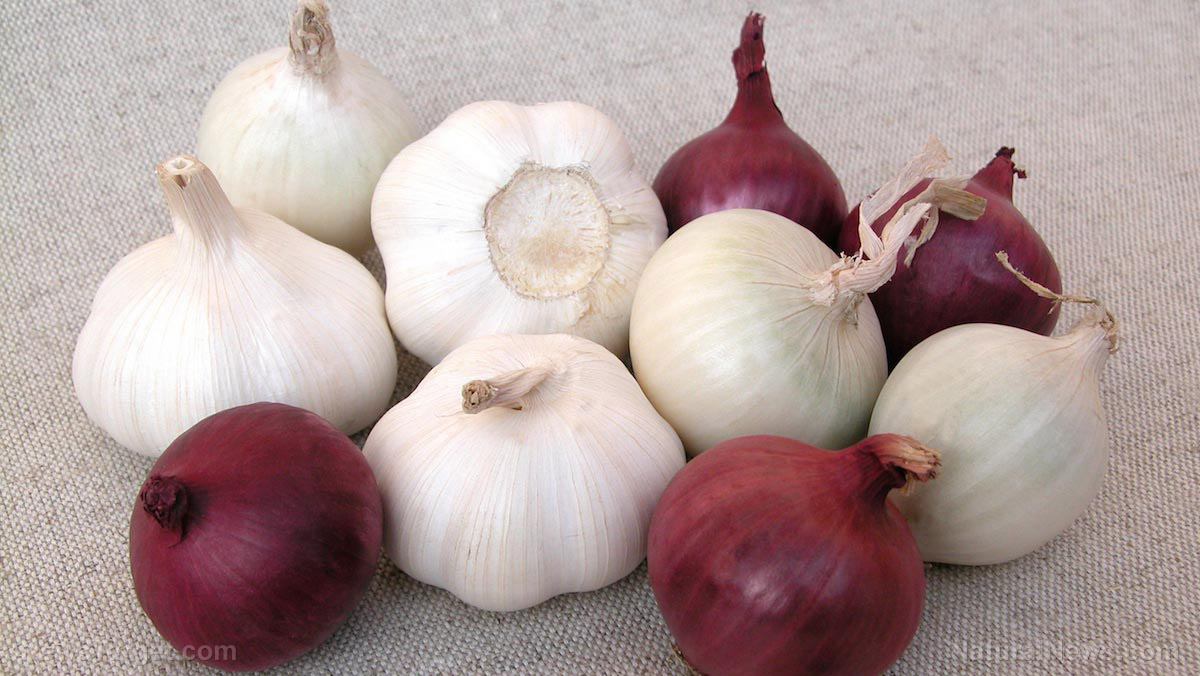6 Amazing benefits of red wine vinegar, an antioxidant-rich ingredient
07/24/2020 / By Virgilio Marin

Red wine vinegar is made by fermenting red wine. It contains probiotic bacteria like all fermented foods and has trace amounts of iron, magnesium, manganese and potassium.
But red wine vinegar is a better source of acetic acid and polyphenols, compounds with proven benefits to health. Acetic acid is present in many kinds of vinegar and is responsible for the strong aroma in the condiment. Polyphenols, on the other hand, are antioxidants that help fight antioxidative stress and help lower inflammation.
Amazing benefits of red wine vinegar
While often used for cooking, red wine vinegar contains nutrients that make it an excellent option for various health-related uses. Here are the six benefits of red wine vinegar:
1. Red wine vinegar lowers blood sugar levels
The acetic acid in red wine vinegar slows the digestion of carbohydrates and increases your absorption of glucose, resulting in lower blood sugar levels. In fact, acetic acid can help you better absorb essential minerals such as calcium and magnesium.
Research further shows the positive effects of vinegar in people with insulin resistance. A study found that after drinking two tablespoons of vinegar before a carb-rich meal, adults with insulin resistance reduced their blood sugar by 64% and increased insulin sensitivity by 34% compared to a placebo group.
In addition, red wine vinegar can lower certain dishes’ glycemic index – the relative ranking of carbohydrate in foods based on their effect on blood glucose levels.
2. Antioxidants in red wine vinegar protect against cell damage
Red wine is rich in polyphenols plus antioxidant pigments called anthocyanins. Antioxidants play a protective role against cellular damage caused by free radicals – molecules that are linked to chronic illnesses like cancer, diabetes, and heart disease.
3. Red wine vinegar helps boost heart health
Acetic acid and resveratrol, a polyphenol antioxidant in red wine vinegar, may help prevent blood clots and lower cholesterol, inflammation and blood pressure. (Related: Resveratrol is a powerful antioxidant.)
Resveratrol can relax blood vessels and increase calcium content in cells, which improves circulation and lowers blood pressure. In addition, acetic acid can also lower triglycerides, a type of fat that can raise your risk of heart disease given high levels in the body.
4. Red wine vinegar may aid in weight loss
Acetic acid can boost fat burning and reduce fat storage and appetite. Furthermore, it delays the release of a hunger hormone called ghrelin by keeping the food in your stomach longer.
In a study, people who consumed high-acetic vinegar alongside a breakfast of white-wheat bread reported increased fullness compared to those who consumed low-acetic vinegar.
Furthermore, raw and unpasteurized red wine vinegar has a lot of probiotic bacteria that aids in digestion.
5. Red wine vinegar helps protect the skin
The antioxidant anthocyanins may help fight bacterial infections and skin damage. These pigments give fruits and vegetables their blue, red and purple colors.
Studies also show that acetic acid and resveratrol can help fight skin infection and skin cancer, respectively. In fact, a test-tube study showed that acetic acid can prevent the growth of the bacteria Acinetobacter baumannii, a common cause of infection among burn victims.
6. You can use red wine vinegar for food and other purposes
Red wine vinegar is a very versatile condiment and household item. It pairs well with pork, beef and vegetables, and is commonly used in salad dressings, marinades and reductions.
Furthermore, it can be added to your bath or used as a facial toner. When diluted, it can also be used to treat mild sunburn.
From skin to the cell, red wine vinegar is an excellent food ingredient that helps improve health and add flavor to your meal. If you still don’t have it, start stocking up now or make your own concoction.
Learn more about the uses of red wine vinegar at Foodcures.news.
Sources include:
Tagged Under: alternative medicine, anti-diabetes, anti-obesity, blood pressure, cardiovascular health, disease treatments, fightobesity, food cures, food is medicine, heart health, natural cures, natural medicine, prevention, red wine vinegar, remedies, Vinegar




















